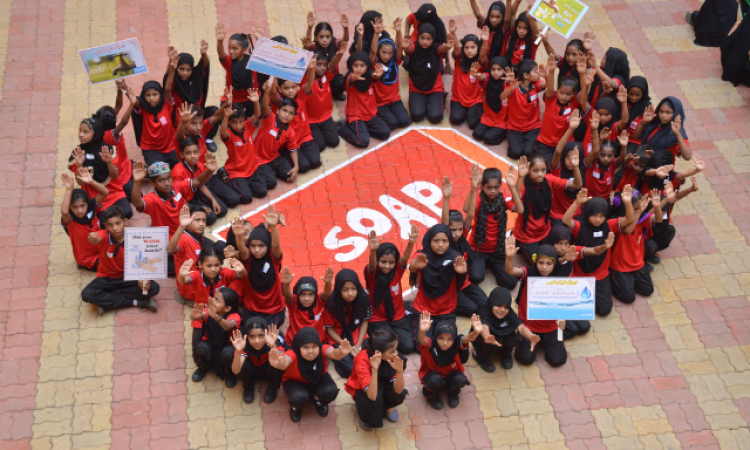
Citizens Association for Child Rights (CACR) works with municipal schools in Mumbai with a focus on WASH and menstrual hygiene management and even a digital literacy programme. It is a development partner of UNICEF Maharashtra and implementation partner of Tata Trusts Mumbai. CACR works with the MCGM education department and looks at issues like activation and strengthening of school management committees, mid-day meal program, school health program, etc.
CACR is managed by Mr Nitin Wadhwani, Director and CEO, with able support of Co-Directors Mrs Indrani Malkani, Chairman and Managing Trustee of VCAN (V Citizens Action Network) and Rtn. M.P. Singh, Past President-Rotary Club of Bandra.
Mr Nitin Wadhwani speaks to the India Water Portal about the work they do, the recent Covid-19 challenge and how they are dealing with it.
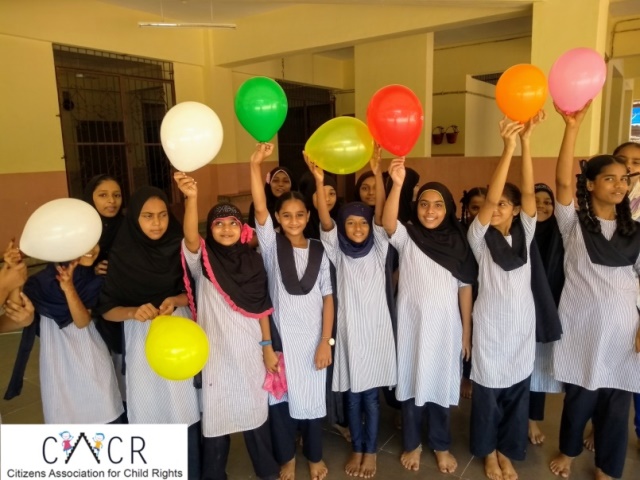
Could you please give us a brief background on your organisation. How did it start? Why did you focus on children and especially on WASH among children?
I come from the social sector and have a professional background of almost 32 years of dealing with corporates and PSUs. After a stint with CRY initially as a donor, I was also involved in anchoring their initiative Mumbaiites for Child Rights (M4CR), which gave me an opportunity to reach out to municipal schools and the MCGM education department.
This helped me to develop an understanding on the ground realities related to children’s education and health and the challenges faced by government schools and the problem of decrease in enrolment experienced in government schools.
We then decided that as an NGO, we would contribute by supplementing the existing system and not creating a parallel one. This would be by adding value to the existing system of education which would help the lakhs of children enrolled in these municipal schools to continue their studies and not drop out.Our work started with the computer literacy program with IITB, followed by hands on computer training of 900 municipal school teachers to make the program sustainable. 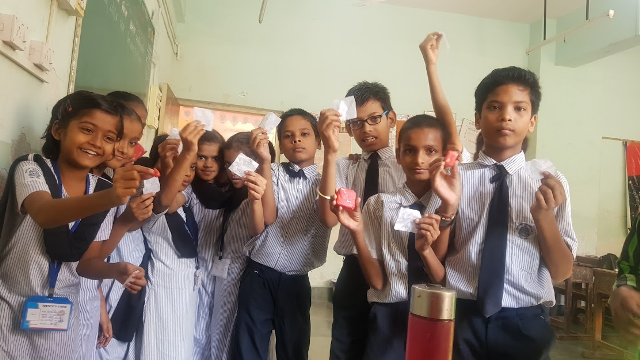 A brief interaction with UNICEF Maharashtra office during Swachata Abhiyaan, also opened the doors for implementing a behaviour change communication (BCC) project on handwashing with soap, followed by menstrual hygiene management of adolescent girls. This association led us to a long term partnership with UNICEF Maharashtra and a major project on WASH in Schools was implemented during the year 2018-19. We reached out to all 1100 municipal schools and almost 3 lakh children as a part of this project.
A brief interaction with UNICEF Maharashtra office during Swachata Abhiyaan, also opened the doors for implementing a behaviour change communication (BCC) project on handwashing with soap, followed by menstrual hygiene management of adolescent girls. This association led us to a long term partnership with UNICEF Maharashtra and a major project on WASH in Schools was implemented during the year 2018-19. We reached out to all 1100 municipal schools and almost 3 lakh children as a part of this project.
During 2019-20, we were also fortunate to get associated with Tata Trusts Mumbai office and implemented a project in M/E ward Deonar municipal school, which not only included BCC training, but also involved refurbishment of toilets in the schools. We have managed to reach out to over 30,000 children in municipal schools on the very elaborate BCC training of WASH in schools, apart from more than 15,000 children on computer literacy.
What are the activities that CACR does? In which areas of Mumbai do you work?
We focus on behaviour change communication (BCC) with children and believe that it is a long term investment for the future!
Water, hygiene and sanitation, apart from Digital Literacy are focus areas and we plan to also start a project on sexual and reproductive health of adolescent boys and girls, apart from safe and nutritious food in schools, as per FSSAI guidelines, in near future.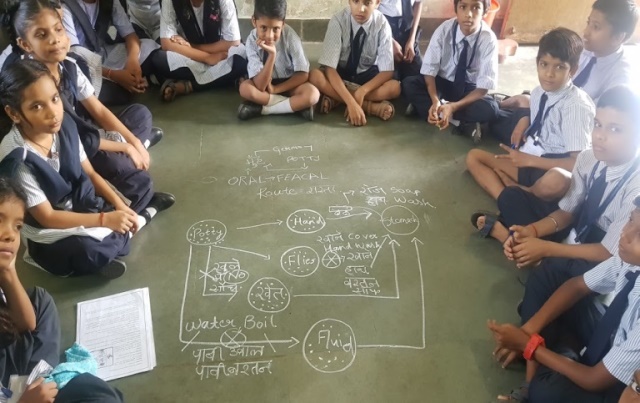 We have implemented the BCC programs in H/E ward (comprising of Bandra (e), Khar (e) and Santacruz (e) east including Kalina and Vakola), H/W (ward of Mumbai covering Bandra (w), Khar (w) and Santacruz (w)), M/E (ward covering Govandi and few area of Chembur), M/W (ward covering Chembur, Ghatkopar and Mankurd), K/E ward (covering Andheri (e), Vile Parle (e), and Jogeshwari (e)) and K/W (ward covering Andheri (w) and Vile Parle west including Juhu) primarily with some activities in other wards like L (ward covering Kurla, Chandivali, Saki Naka, Tungwa, parts of Powai), G/North (ward covering Dadar), R wards, T wards etc. Our objective is to reach out to many more children and their parents through school management committees.
We have implemented the BCC programs in H/E ward (comprising of Bandra (e), Khar (e) and Santacruz (e) east including Kalina and Vakola), H/W (ward of Mumbai covering Bandra (w), Khar (w) and Santacruz (w)), M/E (ward covering Govandi and few area of Chembur), M/W (ward covering Chembur, Ghatkopar and Mankurd), K/E ward (covering Andheri (e), Vile Parle (e), and Jogeshwari (e)) and K/W (ward covering Andheri (w) and Vile Parle west including Juhu) primarily with some activities in other wards like L (ward covering Kurla, Chandivali, Saki Naka, Tungwa, parts of Powai), G/North (ward covering Dadar), R wards, T wards etc. Our objective is to reach out to many more children and their parents through school management committees.
What do you think are the main problems that children face in terms of WASH facilities?
Availability of water is not a major issue in most parts of Mumbai. However, safe drinking water in schools still remains a challenge. Upgradation of WASH facilities is also a challenge in urban schools as classes for multiple divisions continue to be held in the same building and the existing toilets and handwashing stations are inadequate and not provided according to the SBSV ratio. There is also no space in the existing structures to build new toilets and handwashing stations. Sanitation facilities for girls also need improvement in terms of proper disposal of sanitary pads etc. Hygiene and sanitation facilities thus need to be upgraded in schools keeping in mind the Swachh Vidyalaya guidelines.
However, the most important aspect of behaviour change communication (BCC) training is absolutely necessary and critical in each and every school. We feel that these topics should be a part of the curriculum and more so now with the Covid-19 pandemic, which has created havoc all over the world. Handwashing with soap is now a focus and one of the most important area on which information needs to be spread in schools.
Getting parents involved in schools by participating in school management committees is also a great challenge since most of them are daily wagers. Shared responsibility between parents and teachers in schools will help greatly in improving the functioning and quality of education in municipal schools.
What kind of challenges are you facing because of the Covid-19 pandemic and what is your organisation doing to deal with the pandemic?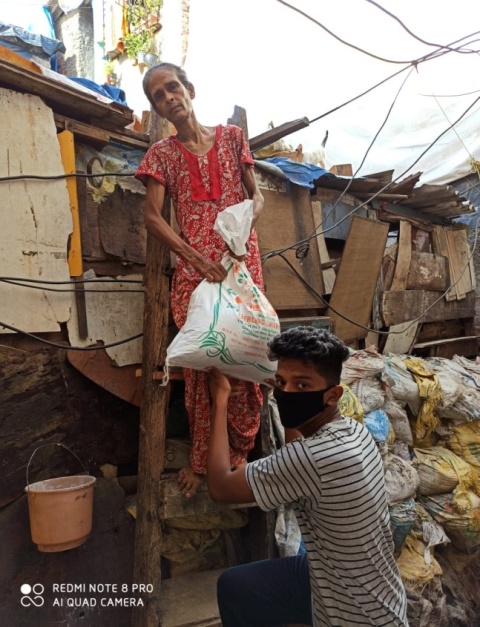 Covid-19 has thrown up a new set of challenges as it has resulted in total shut down of schools and businesses affecting daily wagers, labourers and migrant populations that live in the slums very badly. Most of the children belonging to these families are studying in municipal schools. We have started various initiatives like providing ration kits, ready to eat food, packed hygienic meals, hygiene kits, biscuits, vegetables and fruits to families staying in slum pockets in Mumbai, Panvel and Rasayani.
Covid-19 has thrown up a new set of challenges as it has resulted in total shut down of schools and businesses affecting daily wagers, labourers and migrant populations that live in the slums very badly. Most of the children belonging to these families are studying in municipal schools. We have started various initiatives like providing ration kits, ready to eat food, packed hygienic meals, hygiene kits, biscuits, vegetables and fruits to families staying in slum pockets in Mumbai, Panvel and Rasayani.
More than 12,000 families have been provided with ration kits in H/E, M/W and M/E and L wards. Fifty thousand packets of biscuits, chips were distributed in Dharavi and Vikhroli Parksite areas, 8000 litres of hand sanitisers were provided to the Government of Maharashtra through Haffkine Institute, 250 sets of quarantine beds mattresses pillows bedsheets, bedspreads, bath towels and blankets were provided to MCGM F North for use in Covid-19 care centres.
We are also engaged now with another NGO partner ‘Triratna Prerna Mandal’ in setting up non touch pedal operated handwashing stations in 150 community toilets and 50 municipal schools, apart from engagement of CBOs and Community Toilet Operators and reaching out to 150,000 people and 30,000 children in the community and sensitising them on the importance of Infection Protection and Control as well as Risk Communication and Community engagement with technical and financial support from UNICEF Maharashtra.
What are your long term plans?
While we will continue to do our bit and help during this pandemic, our long term plan is to focus on BCC for children from lower socio economic background. Children being quick learners are also agents of change and hopefully the work done now will lead to better and more responsible individuals of tomorrow.
Attached below is the appeal made by CACR to help labourers, migrants, slum dwellers and their families affected by the lockdown